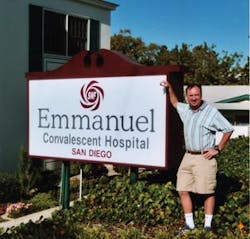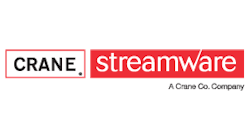How does a startup with limited capital win a "plum" account in a major metropolitan area from a big regional operator?
In the case of "Scott" Spector, it was research, due diligence, creating a strong support network, learning from his equipment supplier, and working diligently to service the account.
Spector, 47, who operates Horizon Distributing in Carlsbad, Calif., has managed to develop a solid supplemental income with five accounts that he is able to service single handedly. The business helps provide a comfortable living for him, his wife and 6-year-old son.
Spector became acquainted with automatic merchandising in his previous business, a pizza restaurant that he operated with his wife in the San Francisco area. The restaurant seated 200 patrons and offered delivery service, catering, take out, pool tables, juke boxes, video games, sports programs, a photo booth and an espresso cart.
"It was a very intense business," said Spector, who managed 17 employees in this restaurant, which was open seven days a week. He found it very difficult to find good employees to keep the business staffed properly.
Search for opportunity leads to vending
Spector sold the business when he decided to relocate to San Diego 10 years ago to care for his father. He purchased some rental property and began investigating other business opportunities, including vending, for supplemental income.
He wanted a business that offered flexibility. He also wanted a turnkey business; one that he could sell quickly if he wanted to.
From his restaurant experience, Spector saw advantages in operating vending machines. "It was something I always wanted to do," he said.
"Machines always seemed a lot better than employees."
Investigating classified ads, he realized the 800 phone number ads were not promising. "A vending ad with an 800 number is probably an unreliable company," he said.
Perfect Break Systems offers an opportunity
There was one ad that offered locations with equipment by the local Perfect Break Systems distributor. Perfect Break Systems is affiliated with the Wittern Group, the Des Moines, Ia., vending equipment manufacturer. "He was local and I could look at the locations before I bought them," Spector said. He researched the Wittern Group. "I was comfortable with them," he said.
The first location the rep showed him was a landscaping company that wanted a coffee machine. Spector didn't feel comfortable starting out with such a one-dimensional machine, so he passed on the location.
The next location was a loan processing center with 300 employees that wanted a soda and snack machine. Both machines accept 5-dollar bills.
The location, with the equipment installed and some training, required $11,000. "I figured it was worth the risk and the investment," Spector said.
Support from a fellow operator
The installation and training were provided by another vending operator, James Meidinger. Spector has developed a good relationship with Meidinger, the certified Perfect Break Systems installer for the area.
Meidinger had gotten into the business himself several years earlier after working for a crane vending machine manufacturer.
Meidinger operates 93 machines in the San Diego area under the name Millennium Vending. "I try to give him (Spector) as much information as I can," Meidinger said.
Meidinger said he is glad to share his experience with other operators since the system has been helpful to him.
Spector has been able to learn how to troubleshoot the machines fairly easily.
"If you know how to change a memory board in a computer, it's pretty simple," said Spector, who was already familiar with amusement machines from his restaurant business. "You don't really need much experience," Spector said.
"Their (Perfect Break Systems) support program is above average," he added. "They can walk you through most (mechanical issues) over the phone."
Equipment distributor helps
Meidinger told Spector where to buy product and what products to buy. He directed him to Sam's Club initially.
Spector said his first location did between $400 and $520 per week and yielded a 50 percent gross profit. It took him two years to recover his investment.
Three months after buying his first location, Spector took on another one, a computer company, with a snack and soda machine. Two months later, he took his third location, another loan processing center.
All three of the locations were similar size accounts and yielded similar results.
Spector's next two locations were larger and required coffee machines in addition to soda and snack venders. By this time, he was feeling more confident.
The next two locations were convalescent centers that served patients and staff 24 hours a day.
The investment for these locations was more than a third higher than the ones with just snack and soda machines.
These locations, unlike the others, also required a 10 percent commission. But they brought in more than twice the sales. Spector estimated it will take him two years to pay for these locations as well.
Spector placed a second beverage machine in a nurse's station in one of the convalescent centers.
Learning how to service the coffee machine was more challenging than the soda and snack vendors. "It was a (crazy) fire drill to get everything set up," Spector said.
He gets the coffee at Sam's Club.
Spector had to replace the brewer assembly in one of the coffee machines, which incurred a $150 shipping bill. "It's been a learning experience," he said.
He said the French Vanilla has proven to be the most popular hot beverage selection.
The convalescent centers were part of a multiple site contract that was previously serviced by a large regional vending operation. "It would have been a hard deal to do myself," Spector said.
Spector doesn't think he could have found the locations he has on his own. "For the locations I'm looking for, I don't know that I have the sales capability to get in there, and the clout of a large company like Wittern sure helps," he said.
Product preferences fairly uniform
Spector noticed there is a lot of uniformity in what customers buy from the machines. He estimated there is about 70 percent uniformity in what his locations purchase.
The 12-select soda machine offers both cans and bottles.
He charges 80 cents for 12-ounce cans and $1.25 for most 20-ounce bottles. His highest priced beverage is Rockstar, the energy drink, at $2.00. He plans to add Red Bull for $2.00 or $2.25.
Spector noted that 16-ounce Arizona Green Tea at $1.25 has been a strong seller in the machine in the nurse's station. He suspects it does well among Asians.
While there is a lot of uniformity among customer preferences, Spector has noticed some uniquenesses. He noticed that some customers prefer 12-ounce cans while others prefer bottles. Hence, he offers both cans and bottles. In one account, he has Coke in a can and Pepsi in a bottle, while in another account, it's the reverse. "That took a while to figure out," he said.
Needs can vary within a location
He has also learned that needs in a break room can be different from those in a hall way. "Visitors go for the cans; they can finish it in one visit," he said.
He raised prices recently when his own prices increased, and found most customers willing to accept it.
"They want hassle free service," he said.
Spector has begun to source about half of his products at Vistar Corp. and a cash and carry warehouse operated by a larger vending company in the area. "Vistar is great; they delivery to my door," he said.
Spector's wife, Kaycee, helps him with the paperwork.
He delivers product with an Econoline van, and uses a coin counter that he purchased at Sam's Club. He sorts all the bills by hand.
With five locations, Spector is happy with the cash flow. Once the capital outlays are recovered, he will have a good income from the business.
He also plans to add more locations. Now that he has a better handle on what characteristics are needed for a profitable location, he will scrutinize prospective accounts more carefully.
Spector is glad he got into vending. "It gives me the flexibility to make my own schedule," he said. "There are not a lot of problems that you take home. You leave everything at work."
More importantly, Spector feels he has accomplished his goal of finding a turnkey business that can be passed on to a buyer.
"This is a turnkey business," he said. "If anybody bought this, they would make money as soon as they bought it."
Profile: Horizon Distributing
Headquarters Location: Carlsbad, Calif.
Founded: 2002
Owner: "Scott" Spector
Number of locations: 5
Number of Employees: 1
Equipment supplier: Perfect Break Systems
Annual Sales: Not revealed






